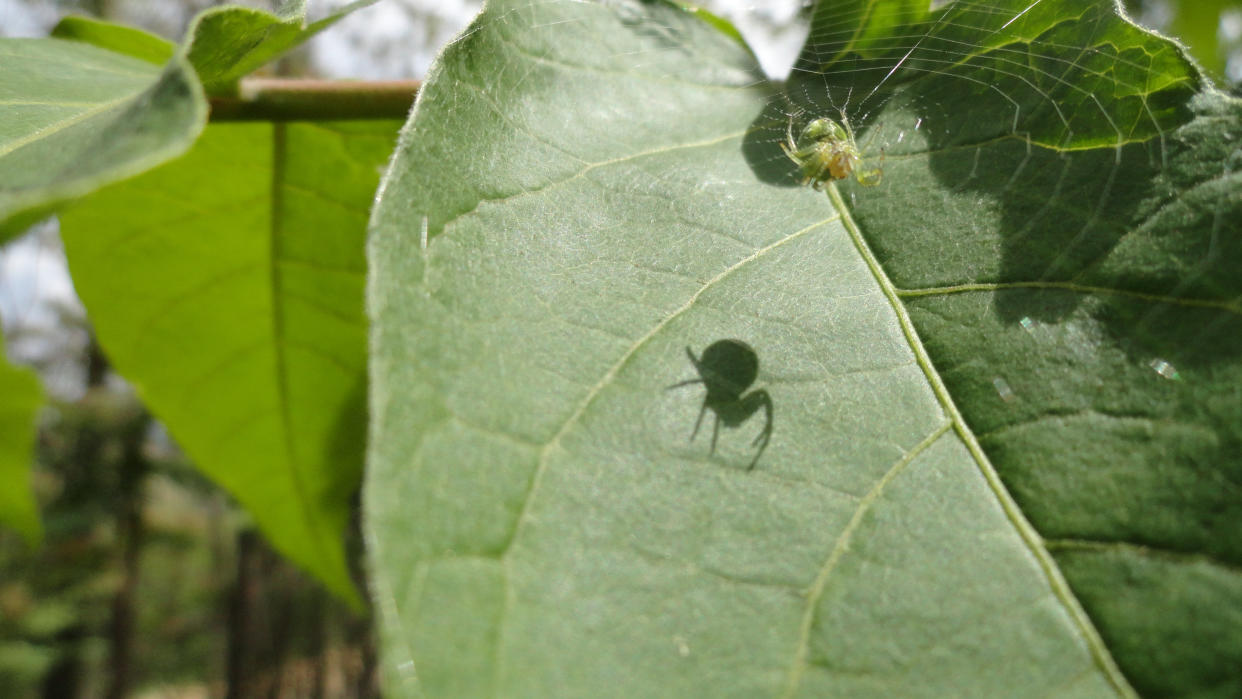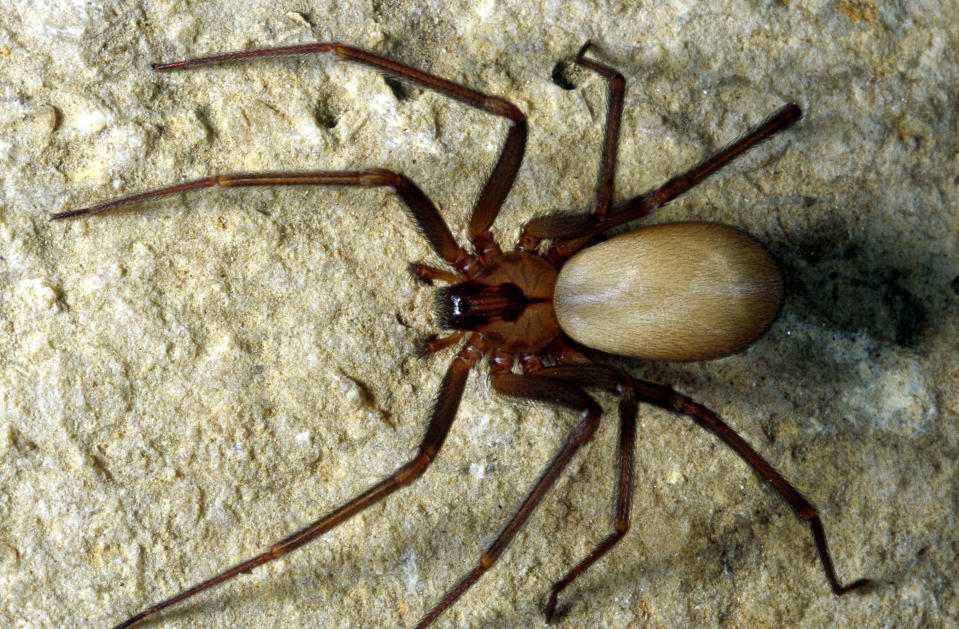Spider bites: What you need to know after two women have life-threatening experiences

A mom of three had her leg amputated after a reported spider bite.
Kiara Boulton of West Memphis, Ark., was stepping out of the shower recently when she noticed a small bump on her foot. Suspecting it was a bite from a brown recluse spider — a species native to her home state — she headed to the emergency room at St. Francis Hospital and was ultimately prescribed medicine. A few days later Boulton began limping, and her toe turned black.
Doctors said Bolton’s toe needed amputation, but the infection spread quickly and there was no choice but to remove nearly her entire leg. As a lifelong diabetic, the mom is also receiving dialysis.
Today, after undergoing seven surgeries, Boulton lives cautiously — to protect her children, she reportedly keeps a jar in her apartment to collect any spiders.
Boulton did not respond to Yahoo Lifestyle’s request for comment; however, she told local station News Channel 3, “Three kids, Kiara, three. God wouldn’t have let you have them if you weren’t supposed to be here for them. Fight through this.”

In June, a Topeka, Kan., woman named Tamara Owsley, 32, contracted necrotizing fasciitis, aka “flesh-eating disease,” after she was reportedly bitten by a brown recluse spider while playing hide-and-seek on Memorial Day at Lake Perry. “I walked into the biggest spider web,” Owsley tells Yahoo Lifestyle.
Owsley initially ignored the swelling on her arm, but days later, when it grew “an inch an hour,” her husband insisted on medical attention. The mom of five has been hospitalized for the past 41 days to treat the rare-but-rapid bacterial infection that attacks the skin underlying the muscles, nerves, fat, and blood tissues, according to the Centers for Disease Control. If not treated immediately, the infection can result in amputation or death.
“I’ve had 15 surgeries, and almost everything in my left arm has been cut away — my whole armpit and parts of my chest,” Owsley says. “The doctors said if I had waited any longer to come into the hospital, I would have died.”
Owsley is now disabled and says she has “mental breakdowns” because of the experience. On Tuesday she established a GoFundMe page to cover her living and medical expenses, which so far has raised a small portion of its $5,000 goal.
Spiders are one of the most misunderstood and feared creatures in the animal kingdom, despite the fact that the majority are harmless, according to world-renowned expert Rick Vetter, a retired researcher in the department of entomology at the University of California, Riverside.
“Spider bites are also widely misdiagnosed by doctors,” he tells Yahoo Lifestyle. “There is no way to test spider venom in part because the beads lodged under the skin are so minuscule, and doctors often diagnose based on ruling out other conditions and self-reports from patients.” Vetter adds that poison control centers may have inaccurate data since callers often provide limited information.
According to Vetter’s study published in the New England Journal of Medicine, conditions such as fungal infections, diabetic ulcers, septic embolism, and even leukemia are often mistaken for spider bites, leading to delayed treatment.
Only two types of spiders in the United States are potentially dangerous to humans: Brown recluses, which live in Texas, Oklahoma, Louisiana, and Arkansas (and surrounding states to the east), can in extreme cases cause necrosis (tissue death). That reaction is due, not to infection as recluse bites are nonbacterial, but from an individual’s specific immune response and destruction of small blood vessels at the bite site.

Black widows, “shy and secretive arachnids,” a species common in many middle and southern parts of the country, carry neurotoxic venom that can damage nerve tissue. Symptoms of a bite are abdominal pain and muscle spasms, and the bite itself is the size of a pinprick. Vetter says that death can sometimes result from black widow bites.
These spiders are generally more visible in warmer weather when their prey (insects) are active.
Still, says Catherine Scott, a PhD student in the Andrade lab at the University of Toronto, Scarborough, most spider bites are generally harmless and self-healing and don’t necessarily require medical attention.
In reality there is only one definitive way to determine a spider bite: If you see the spider biting in real time or one that’s dead at the scene. “Unlike ticks, mosquitoes, or bedbugs, spiders don’t feed on human blood — they have no biological motivation,” Scott tells Yahoo Lifestyle. “However, spiders do bite in self-defense, especially if one spins a web in a boot and gets accidentally crushed by a foot.”
Read more from Yahoo Lifestyle:
Snake bites are on the rise — here’s what parents should know
The terrifying moment a child was almost crushed by a chest of drawers was caught on CCTV
Follow us on Instagram, Facebook, and Twitter for nonstop inspiration delivered fresh to your feed, every day.
